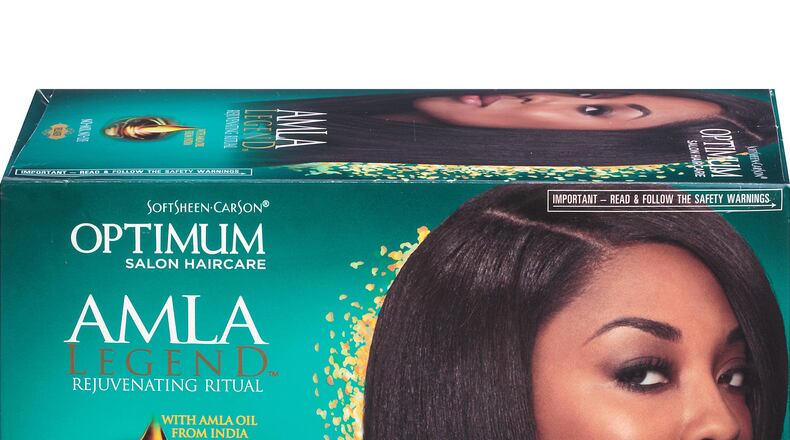Famed Los Angeles attorney Mark Geragos is taking on the haircare industry.
Geragos, who has a distinguished career in both criminal and civil cases, has demanded an urgent recall of a hair relaxer targeting African-American women, reports TMZ .
Black women say the SoftSheen-Carson Optimum Amla Legend No-Mix, No-Lye Relaxer has left them with burned scalps and bald spots. Geragos and Ben Meiselas are representing the women in a class action lawsuit filed in September, but now they are demanding the product be removed from shelves.
The relaxer is a $10 store-bought product from L'Oreal owned, SoftSheen-Carson. It promised to protect hair and infuse it with Amla oil which has been used in Ayurvedic medicine for thousands of years. Advertising suggested that the Amla Legend line of products, launched in 2013, was "enriched with purified Amla extract that rejuvenates hair and undoes 2 years of damage in 2 weeks," said the lawsuit.
High profile stylist, Johnny Wright who has styled First Lady Michelle Obama's hair, was employed as the artistic director and celebrities such as Tracee Ellis Ross and Real Housewives of Atlanta star, Cynthia Bailey have served as spokeswomen for the product. Here is a promotional video from 2014 that shows Wright giving step-by-step instructions on usage:
But attorneys say L'Oreal has misled women with their claims. Not only is Amla oil the last ingredient in the product, it comes behind a host of other toxic ingredients that have proven harmful to those who use it. The lawsuit, filed Sept. 14 in California Central District Court, alleges false advertising, fraud and negligence among other things. A similar lawsuit against L'Oreal for the same product was filed in Aug. 19 in the U.S. District Court Southern District of New York, according to documents from Truthinadvertising.org .
Two named plaintiffs in the more recent lawsuit, Dorothy Riles and Sharon Manier, both said they experienced scalp irritation and hair loss from using the relaxer and were forced to use hairpieces or wigs to hide the damage.
"L'Oréal has known for years that its Product is dangerous and defective—yet it has taken no action to warn the public, recall the Product, or compensate the vast majority of its purchasers. Instead, it continues to falsely and fraudulently promote the Product's claimed safe and nourishing qualities, even while quietly responding to certain online complaints with requests that the individual call customer service with a reference number for help," says the lawsuit.
After the lawsuit was filed, attorneys said hundreds of women began offering up similar experiences. Negative reviews of the product have been popping up on websites like Walmart.com and Amazon.com since 2013. The product has a two star rating from users on Amazon.
L'Oreal has responded to the claims by saying the product packaging clearly lists the warnings and offers instructions on how to use the relaxer it safely, but attorneys have said the company is just blaming the victims.
According to a recent report from the Environmental Working Group products marketed to black women are more likely to have potential health hazards. Fewer than 25 percent of products marketed to black women could be considered low hazard compared to 40 percent of products for the general public. The worst-scoring product categories were hair relaxers, with an average score of 8.1.
“Many of the hair relaxers and dyes are multi-step products that increase the chance of being exposed to hazardous chemicals,” said Paul Pestano, EWG senior database analyst. “Some of the hair lotions and styling gels contain ingredients of concern like parabens, formaldehyde-releasing preservatives and 'fragrance.”
This probably isn't very surprising to black women who have grappled with the hazards of relaxers and other personal care products targeted to them for decades.
And in the case of hair relaxers, there would appear to be at least one legal precedent.
In the mid-1990s thousands of women filed complaints with the Food and Drug Administration against a product called Rio alleging that the relaxer had caused hair and scalp damage and hair loss. The product was eventually barred from being imported or sold and remaining stock was destroyed. In 1995, the class action lawsuit received a judgement of $4.5 million.
About the Author
Keep Reading
The Latest
Featured



